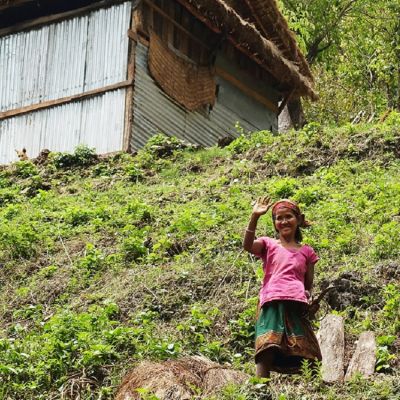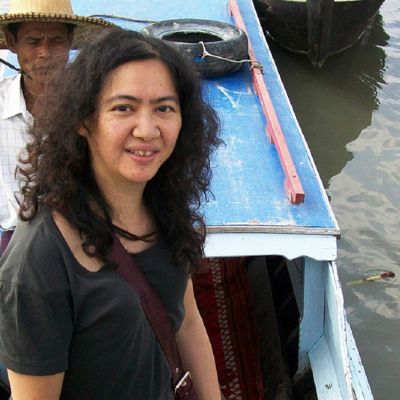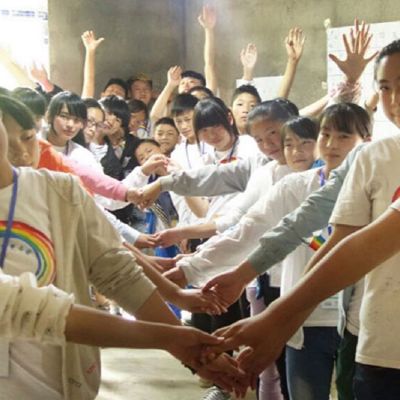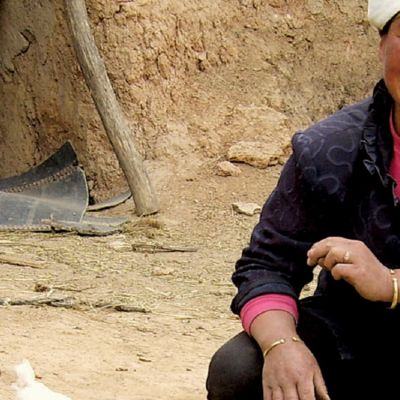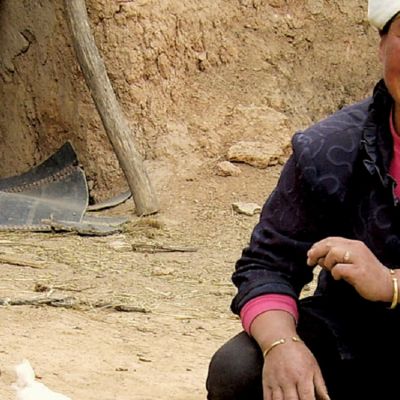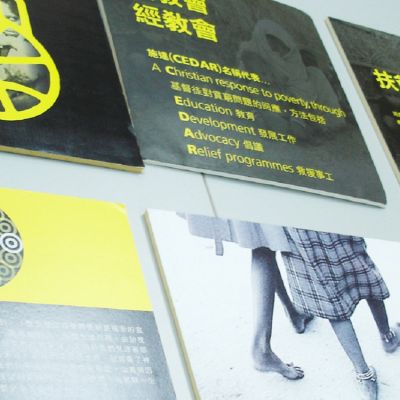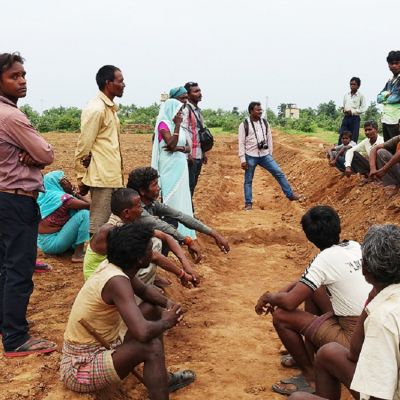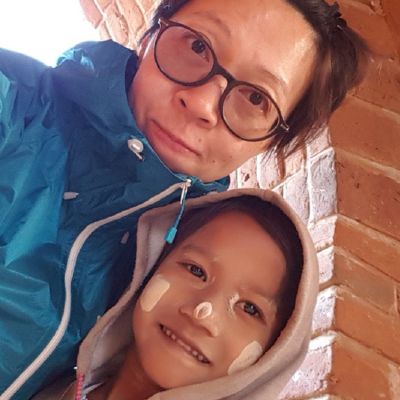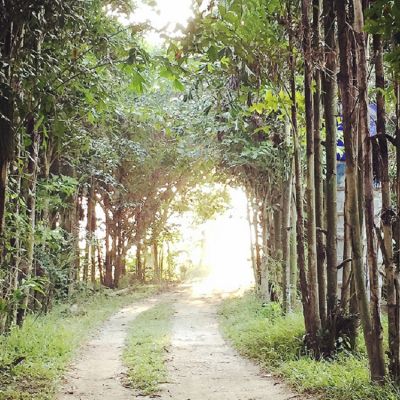Interviewee: Fountain Chik (Senior Programme Officer)
Written and edited by: Jojo Poon
“Previously, I have worked in Tung Chung, Sham Shui Po, and Yuen Long before.” Many of us know that Fountain is the “Bangladesh guy” or “Prince of Bangladesh” at our office, but little have heard of his story before CEDAR. He says he began in community work locally. From different times of his service, there has always been one unified goal – to look for God’s footprint wherever he goes.
When he was working in Tung Chung, Fountain was assisting community members on job employment as a social worker. Due to its long distance from business districts and to save on transportation fees, low-income residents in Tung Chung tended to look for jobs nearby, such as the airport and around Tung Chung. At that time, Tung Chung had many newly built schools, and school janitors were in need. Hence, the community centre designed vocational training for the local residents, many of them were later hired. From a programme perspective, it was a success; but deep-down in the heart of a beneficiary, he was not satisfied, “Why did I deserve to live like this?” Fountain realised that though they had successfully helped the locals to solve the job problem, they did not have the answers to their life’s struggles and injustice. From then on, he was more determined to connect development work with spiritual life.
Working alongside Fountain for some years, I admire his attitude in relying on God and his constant desire to seek God’s intervention in whatever he does, from visiting project sites to interacting with beneficiaries, and from communicating with frontline partners to monitoring project progress.
“We focus on serving people living in Interim Housing in Yuen Long. One unforgettable sight was when we went house visit, I saw a man playing “Aeroplane Chess” by himself, acting as four players. That moment, I saw isolation.” Fountain and his team’s work was to provide support to and connect members living in Interim Housing to face life challenges together. He shares an incident that their community centre and office were maliciously damaged with red paint all over and burned. The police believed the incident was related to land ownership issue, and it was an act to threaten their presence. Fear arise among the staff for their own safety.
The fire had burned and ruined most of the office, except one wooden plaque where a Bible verse was printed. This Sign calmed the hearts of the staff and restored their faith. After the incident, they organised prayer walks to pray for the community, and the office was later renovated. When the community centre reopened, they invited community members to do handprints on the wall where red paint was splashed over. They also hung a banner up indicating that everyone, including those who did the malicious act, were welcomed to come in. “That day, we invited government officials, as well as many community members, including the man who played ‘Aeroplane Chess’ by himself, to join the opening ceremony,” says Fountain. He saw that the incident had brought the community together.
In 2012, Fountain joined CEDAR and was responsible of supporting and monitoring overseas development projects, specifically projects in South Asia and Africa. Although his role was to give support, to him, it offered great opportunity for him to learn from the people in South Asia and Africa what development is. “Solidarity is an instinctive sense found in men.” It sounds like an abstract concept, but as he continues sharing, we began to understand what it means, “The first time we went to Bangladesh, everything was very new to us. We asked a young man, he spent 15 minutes helping us to re-activate our SIM cards. Later, I learned that we were standing outside of an exam centre. He helped us but missed 15 minutes for his test. Another time, I was in Zimbabwe, visiting a lady who could not work due to her illness. Yet, she was able to raise 13 children, whose parents had passed away due to HIV, with the financial support of the community.” Fountain says that it was uplifting to see this natural consciousness of “caring for others needs before mine” in them. This sense is, unfortunately, rare in Hong Kong; but commonly embraced by community members in developing countries.
“How does development relate to missionary work?” This is a question we were often asked. Fountain says, “When Jesus encountered the Samaritan woman by the well (John 4:1-42), what was He doing? Was He trying to solve the racial issue between the Jews and the Samaritans? Or adultery issue? Was He challenging gender norms? Or the woman needed living water, so He was telling her about the gospel? I believe that He did not had an operational agenda, but, He was simply caring for the woman, about her circumstances. Jesus cared for the demon-possessed man in Decapolis, and addressed to some other needs in Galilee. Wherever Jesus goes, He lives there, learns about the community and what they need…In John 20, it says: As the Father has sent me, I am sending you. This is The Mission. How the Father has sent the Son to live among the poor, full of grace and truth (John 1:14). The Son also sends us, the Church, to live among them, bringing transformation. This is development.”
To Fountain, 2017 was a strange year for Hong Kong. While the stock market and estate market hit record high by year end, population in poverty has also exceeded previous record as well. We often neglected the poor unconsciously. They were not included in our economic systems, in our social structures, nor even in our churches. “If anyone, then, knows the good they ought to do and doesn’t do it, it is sin for them.” (James 4:17) Fountain encourages brothers and sisters to select two groups: one locally and one abroad to prayerfully and financially remember and support. “The kind of support that involves emotions, that you will feel heartbroken at times.”
Content of this issue
Written and edited by: Jady Sit, Jojo Poon At noon on 25 April 2015, Nepal was hit by the strongest earthquake in 80 years. Countless families lost their loved ones, homes, and properties. Approximately one third of Nepal’s population, 8 million, was affected by the quake. In the midst of ruthless disaster, people responded with love. Shortly after the earthquake, the world quickly pooled their resources to help. Yet, when global news coverage died down and emergency relief phased out, this was when we began to walk with the affected communities, helping them to rebuild and recover their communities sustainably for the long run. In the last decade, CEDAR has been supporting partners’ community development work in mountainous…
Written by: Lisa Chai (Former CEDAR colleague, currently involved in community development work in Myanmar) We are in the midst of a global refugee crisis. From Syria to Iraq, DR Congo to Yemen, and today we are witnessing the world’s largest growing refugee influx across the border of Bangladesh after violence broke out at northern part of Myanmar in Rakhine State in late August last year. As of 12 November 2017, the UN estimated that over 610,000 people have fled to Myanmar and the number is still growing. How do we react to all the violence and suffering in the world when their impact comes so strong and destructive? In the book of Lamentation we read of the…
“Left-behind Children”, a term describing over 60 million children in China who stayed behind with their grandparents in rural areas while their parents are working in the cities. While not all left-behind children suffer from poverty as their parents work far away from home, they all suffer the lack of parental care and love, and bear emotional burdens due to this long-term void. CEDAR’s partner in Sichuan, Chengdu Fuyi Community Services Centre, began supporting youths in quake-affected communities through caring and training programmes after the 2008 earthquake in Wenchuan, Sichuan. Two more earthquakes happened in Ya’an, Sichuan and Zhaotong, Yunnan in 2013 and 2014 respectively, leading to the expansion of our partner’s service to the youths in those…
Written and edited by: Jojo Poon I enjoy hearing stories and sharing of different development workers very much. If we put their sharing together, then we would get a complete picture of God’s purposes for the poor and the world. For this issue’s “Taking Action”, we invited CEDAR’s staff from different eras to share about their learnings and experiences along the way to put together a blueprint for CEDAR. “We were in Gansu’s Hui village working on the project… When we conducted home visits, we would ask: ‘Is anyone home?’, and if there were only women in the house, they would answered: ‘No!’” shares Alice, who served in Gansu, China. “We spent half a year to build relationship…
Interviewee: Alice Kwan (Former CEDAR Staff) Interviewed and edited by: Jojo Poon How far would you go for the poor? Would you visit the Guangdong industrial district alone to investigate sweatshop labour, or venture to Northwest China alone and live among the Hui people, or supervise earthquake rescue efforts while carrying a baby in your tummy and worrying about your husband’s safety who is responding at the frontline, or devote your family as a fulltime volunteer for four years, only to wake more hearts to care for the poor? That was Alice Kwan’s story. Alice had served in CEDAR for 12 years, 4 of which were spent supporting the community development projects in rural communities in Gansu, China….
Interviewees: Bonnie Ho (Administrative Staff) & Cee Foong Fung (Former colleague of CEDAR) Interviewed and Edited by: Jojo Poon Bonnie and Cee Foong had been serving CEDAR for over 20 years. Although they worked in the supporting role at the office, but that did not make them less knowledgeable about development work than others working in the same field. Such was evident during one of our regular morning meetings, the host led us to think in the shoe of the poor and we were to think about what their expected results for their community were after a project commenced. At the end, they both gave the most sensible answers. Bonnie has always been managing our accounting and finance,…
Interviewee: Fountain Chik (Senior Programme Officer) Written and edited by: Jojo Poon “Previously, I have worked in Tung Chung, Sham Shui Po, and Yuen Long before.” Many of us know that Fountain is the “Bangladesh guy” or “Prince of Bangladesh” at our office, but little have heard of his story before CEDAR. He says he began in community work locally. From different times of his service, there has always been one unified goal – to look for God’s footprint wherever he goes. When he was working in Tung Chung, Fountain was assisting community members on job employment as a social worker. Due to its long distance from business districts and to save on transportation fees, low-income residents in…
Interviewee: Grace Lai (Head of Partnership Development) Interviewed and edited by: Jojo Poon People take part in poverty relief works with different reasons. For Grace, the seed to care for the poor was sowed and rooted in her heart since her childhood years. “Every time the TV showed a commercial from a development aid organisations, I would be deeply moved… After I became a Christian, I wanted to do something meaningful. The moment came when I was changing jobs, where I recollected those old thoughts in my heart. I wanted to enter the poor’s community and live with them. Therefore, I began to realise this childhood dream by joining the development field.” About 10 years ago, Grace went…
Interviewee: Rebecca Lee (Senior Programme Officer) Interviewed and edited by: Jojo Poon Devotees in the development industry often started out with a calling derived from a unique personal experience. For Rebecca, our Senior Programme Officer, that special experience took place during her university years. She was pursuing a degree in International Politics, and one of the subjects was International Relations. It was her first time acknowledging the wide disparity between the world’s rich and poor, “I didn’t think God intended the world to work this way: while some people were starving to death, others enjoyed excessive abundance. This was clearly wrong. I wanted to do something to make the world a better place,” Rebecca says. Since then, to…



